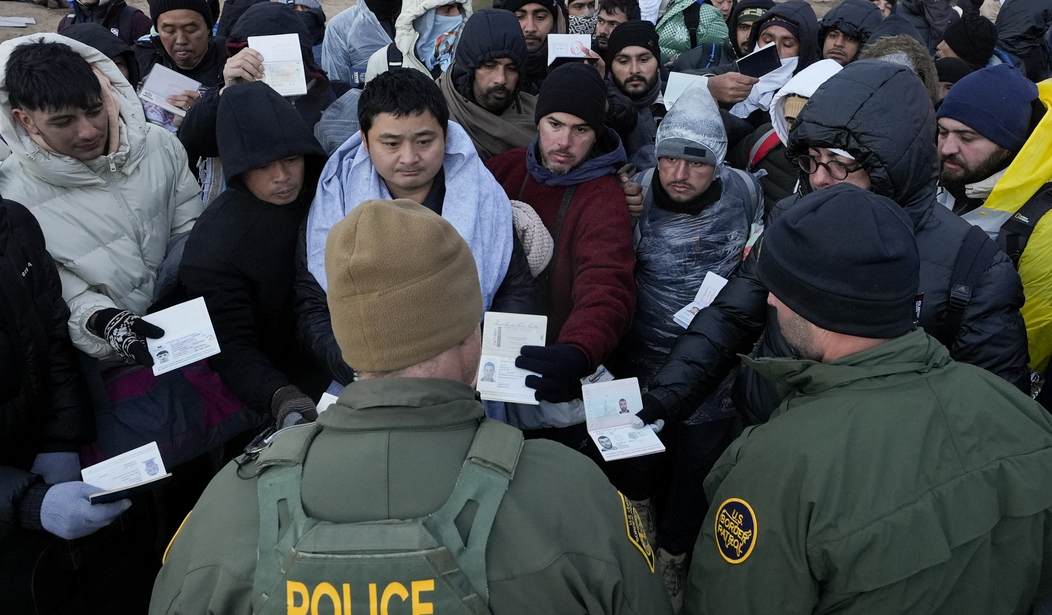President Trump's call for 10,000 new Border Patrol agents is precisely what our border security needs, but there's a crucial question: where exactly are we supposed to find these people? The answer is staring us right in the face. Every year, about 200,000 service members transition out of the military. These aren't just numbers on a page – these are trained professionals looking for their next mission, and we desperately need them not just for Border Patrol but for Immigration and Customs Enforcement (ICE) and Homeland Security Investigations (HSI).
What we need is a comprehensive "Troops to Homeland" program. Successful initiatives like Troops to Teachers and Troops to Cops have proven that targeted military transition programs work. These programs have demonstrated the value of channeling military experience into crucial public service roles. We have thousands of military members transitioning to civilian life, already skilled in working under pressure, familiar with a chain of command, and experienced in challenging environments.
Having Border Patrol recruiters occasionally attend college job fairs isn't going to cut it. We need Border Patrol recruiters at every single Transition Assistance Program (TAPS) briefing, actively engaging with service members before they hang up their uniforms. These recruiters must be honest about the challenges and clear about the opportunities. Yes, your first assignment will likely be on the southwest border. Yes, it might be in a remote area. But who better handles these conditions than someone who has already served in challenging environments?
But not everyone is cut out to be a Border Patrol agent, veteran or not. The role demands physical stamina, mental resilience, and the ability to make split-second decisions that can impact lives; including their own. The harsh environment of the southwest border, irregular work hours, and the intensity of the mission require a special kind of individual. Even among veterans, who are typically well-suited for these challenges, not everyone will meet these demands or want this type of work. This reality makes it even more crucial to focus our recruitment efforts on those veterans who possess both the capability and the desire to take on the mission to secure our border. We need quality, not just quantity.
Recommended
One of the most significant advantages of hiring veterans is security clearances and background investigations. The longest and most challenging hurdle in the Border Patrol hiring process isn't the physical test or the training - it's the background investigation and polygraph requirement. Veterans, particularly those who have held security clearances, represent pre-vetted candidates. Recent changes to polygraph requirements now allow waivers for certain veterans; this isn't just about convenience - it's about rapidly hiring agents in the least amount of time possible, a few months, not over a year in certain circumstances.
Money can't solve a leadership problem. The Border Patrol must take a long, hard look in the mirror. Too many good agents are walking away to join other agencies or leaving government service entirely. Poor leadership doesn't just affect current agents; it creates a reputation that makes recruitment even harder. Veterans who have experienced both good and bad leadership in their military careers are particularly sensitive to these issues. They understand that strong leadership is crucial for mission success and personal job satisfaction.
Border Patrol can be whatever you make of it - a stepping stone, a mid-term commitment, or a lifelong career. Whether you serve for 2 years, 4 years, or 6 years, or make it a career, every year of service matters. This flexibility makes the Border Patrol a solid choice for transitioning service members who may be unsure about their long-term career plans. Some will use the experience as a launch pad to other federal agencies or private sector opportunities. Others will find their calling and stay.
A successful Troops to Homeland program requires several key components working together:
First, we need dedicated recruitment centers near major military installations to make the transition process seamless. These centers should be staffed by former military members who understand both the Border Patrol mission and military transition challenges.
Second, the hiring process must continue to be streamlined, building on recent changes to polygraph requirements that now allow waivers for certain veterans and recognize reciprocity from other federal agencies. More reforms are needed to reduce bureaucratic hurdles.
Third, the agency must cultivate leadership that not only understands and values veteran experience, but also creates robust support systems for families transitioning to border locations. Moving to remote border areas can be a significant challenge for military families who have already endured multiple relocations.
We don't just need bodies in uniform—we need dedicated professionals who understand service and sacrifice. With 200,000 service members transitioning each year, we have a golden opportunity to staff not just the Border Patrol but also ICE and HSI. Creating a pipeline from military service to Homeland Security isn't just smart policy; it's essential for our nation's security.
Our veterans have already proven their commitment to serving their country. Now, it's up to DHS to prove they're worth serving. No amount of hiring initiatives or recruitment bonuses can substitute for genuine respect, solid leadership, and a culture that values its people. Whether someone serves for two years or twenty, each contribution strengthens our nation's security.
I write this from experience. I joined the Border Patrol after serving in the U.S. Army, using my veteran's preference and military background to transition into federal law enforcement. The Border Patrol served as my bridge to other federal opportunities. My experience and knowledge there proved invaluable in my later federal career. This path—from military to Border Patrol to other federal agencies—could work for thousands of transitioning service members. We need to build better bridges to make it happen.

























Join the conversation as a VIP Member